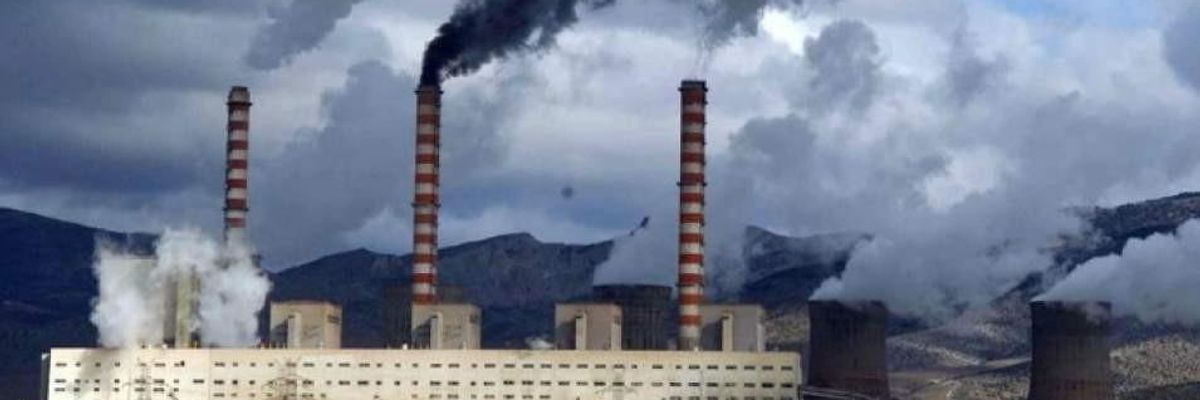In a step toward formally recognizing that humankind--with its incessant burning of fossil fuels, use of nuclear weapons, and more--has dramatically altered the state of planet Earth, a panel of prominent scientists voted last week to designate a new geological epoch titled the "Anthropocene."
The 34-member Anthropocene Working Group (AWG) is expected to submit a proposal to the International Commission on Stratigraphy to officially recognize the Anthropocene--which means "age of man"--by 2021.
According toNature's Meera Subramanian, 29 members of the AWG voted "in favor of starting the new epoch in the mid-twentieth century, when a rapidly rising human population accelerated the pace of industrial production, the use of agricultural chemicals, and other human activities."
"At the same time," Subramanian reported, "the first atomic-bomb blasts littered the globe with radioactive debris that became embedded in sediments and glacial ice, becoming part of the geologic record."
Last week's vote, which was over a decade in the making, was just the first step in the process of formally recognizing the Anthropocene epoch.
The AWG is now tasked with identifying a "golden spike," a geological marker that best identifies the dawn of the "age of man."
As Subramanian reported, the AWG
is considering ten candidate sites from around the globe, including a cave in northern Italy, corals in the Great Barrier Reef and a lake in China. Next week, many of the scientists involved will gather in Berlin to coordinate the next two years of research. They hope to identify a single site to include in their formal proposal. They must also define the type of physical evidence in the sedimentary record that represents the start of the epoch. The group is considering whether to choose the radionuclides that came from atomic-bomb detonations from 1945 until the Limited Nuclear Test Ban Treaty of 1963.
Jan Zalasiewicz, geologist at the University of Leicester and chair of the AWG, toldInverse that while we are still technically in the Holocene--an epoch which began around 12,000 years ago--"in reality many important geological conditions of Earth are now outside the envelope of conditions that have characterized the great bulk of the Holocene."
"Getting an official designation of the Anthropocene would reflect this new reality," said Zalasiewicz, "and help us analyze it more effectively."
